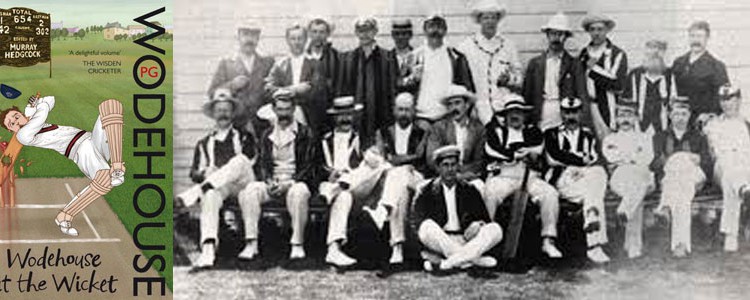
CEO MARKUS DOHLE ANNOUNCES PENGUIN RANDOM HOUSE GLOBAL LEADERSHIP TEAM
BERTELSMANN & PEARSON FINALIZE MERGER TRANSACTION
(July 1, 2013)—The global senior executive team for Penguin Random House was announced today by Chief Executive Officer Markus Dohle, following the closing of the transaction by shareholders Bertelsmann SE & Co. KGaA and Pearson this morning to formally establish the venture. Bertelsmann owns 53% and Pearson 47% of the company. Penguin Random House will combine the adult and children’s fiction and nonfiction print and digital trade book publishing businesses of Penguin and Random House in the U.S., U.K., Canada, Australia, New Zealand, and India; Penguin’s trade publishing activity in Asia and South Africa; Dorling Kindersley worldwide; and Random House’s companies in Spain, Mexico, Argentina, Uruguay, Colombia, and Chile. Random House’s German-language publishing group, Verlagsgruppe Random House, is outside the venture, and remains part of Bertelsmann, continuing to report to Mr. Dohle.
Between mid-February and early June, in order of review, Penguin Random House received governmental merger control approval in the U.S., New Zealand, Australia, the European Commission, Canada, South Africa, and China, all without condition.
Penguin Random House will employ more than 10,000 people across five continents. It will comprise nearly 250 editorially and creatively independent imprints and publishing houses that collectively publish more than 15,000 new titles annually. Its publishing lists include more than 70 Nobel Prize laureates and hundreds of the world’s most widely read authors.
Effective with today’s closing, Markus Dohle, Chairman and CEO of Random House worldwide since 2008, assumes the position of CEO, Penguin Random House, and John Makinson, head of the Penguin Group worldwide since 2002, takes on the position of Chairman of Penguin Random House. The Penguin Random House Board appointments were announced separately by Bertelsmann and Pearson this morning.
Mr. Dohle said, “Today, Penguin and Random House officially unite to create the first truly global trade book publishing company. As separate companies, we have long performed outstandingly by every benchmark; as colleagues, we will share and apply our passion for publishing the best books with our enormous experience, creativity, and entrepreneurial drive. Together, we will give our authors unprecedented resources to help them reach global audiences—and we will provide readers with unparalleled diversity and choice for future reading. Connecting authors and readers is, and will be, at the heart of all we strive to accomplish together.”
John Makinson said, “Penguin Random House starts life today as a freshly minted company, but also as a creative enterprise that will draw on the greatest legacies in the history of book publishing. That heritage will help to frame the culture and personality of Penguin Random House as we place our extraordinary shared resources at the service of our authors, our customers, our readers, and our colleagues. It is an exciting day for all of us.”
In announcing his senior executive appointments, Mr. Dohle said, “Our global and local leadership comprises proven executives drawn from both sides of the company who are inclusive and collaborative with colleagues in their decision making and who fully support our publishers and our authors in realizing their vision and objectives for our books.”
Effective immediately, the following newly appointed executives report to Mr. Dohle, who additionally serves as CEO for the Penguin Random House U.S. company:
Coram Williams, previously CFO for the Penguin Group, will serve in a dual capacity as Chief Financial Officer for Penguin Random House, in the U.S. and worldwide. Mr. Williams will also oversee the self-publishing business Author Solutions.
David Shanks has stepped down as CEO, Penguin Group (USA). He will serve as Senior Executive Advisor to Mr. Dohle and the U.S. executive team.
Madeline McIntosh, formerly Chief Operating Officer, Random House U.S., becomes President and Chief Operating Officer of Penguin Random House in the U.S.
Brad Martin, formerly President and CEO of Random House of Canada, is appointed CEO of Penguin Random House in Canada.
Tom Weldon assumes responsibility for Penguin Random House in the U.K. as CEO. He was previously Chief Executive Officer, Penguin Group UK.
Gail Rebuck will become Chair of the Penguin Random House U.K. Board.
Ian Hudson will serve as Deputy CEO of Penguin Random House U.K., a position he previously held at Random House UK. Separately, he will oversee Penguin Random House’s operations in Australia, New Zealand, India, South Africa, and Asia in his capacity as Chief Executive Officer, Penguin Random House International (English Language).
Gabrielle Coyne will be CEO of Penguin Random House Asia Pacific and Gaurav Shrinagesh will be CEO of Penguin Random House India. Ms. Coyne previously served as CEO of Penguin Group Asia Pacific, and Mr. Shrinagesh as Managing Director of Random House India. Stephen Johnson will continue to lead Penguin Books South Africa. They will all report to Mr. Hudson.
Also, continuing in their current capacities:
Núria Cabutí, Chief Executive, leads the company in Spain and Latin America; it will operate under the name Random House Mondadori.
John Duhigg, Chief Executive, Dorling Kindersley, is responsible for Dorling Kindersley (DK) business worldwide.
Mr. Dohle announced the appointments of three executives with Penguin Random House global corporate responsibilities: Frank Steinert will be the company’s Chief Human Resources Officer, Stuart Applebaum will lead communications, and Milena Alberti will oversee corporate development, each having served in similar capacities at Random House. All will also have responsibility in the U.S. for their respective corporate functions.
Mr. Dohle also announced the newly formed Penguin Random House Global Executive Committee to work together with him to set the company’s strategic, operational, and publishing direction and priorities. The Committee’s members are:
Núria Cabutí; Gina Centrello, President and Publisher, Random House Publishing Group; Tony Chirico, President, Knopf Doubleday Publishing Group; Gabrielle Coyne; John Duhigg; Leslie Gelbman, President, Mass Market Paperbacks, Penguin Group U.S.; Ian Hudson; Barbara Marcus, President and Publisher, Random House Children’s Books; Brad Martin; Maya Mavjee, President and Publisher, Crown Publishing Group; Madeline McIntosh; Sonny Mehta, Chairman and Editor-in-Chief, Knopf Doubleday Publishing Group; Susan Petersen Kennedy, President, Penguin Group U.S.; Andrew Phillips, Chief Executive Officer, Author Solutions; Frank Steinert; Don Weisberg, President, Penguin Young Readers Group U.S.; Tom Weldon; and Coram Williams.
Penguin Random House world headquarters are in New York City.
Penguin Random House (http://www.penguinrandomhouse.com/) is the world’s first truly global trade book publisher. It was formed on July 1, 2013, upon the completion of an agreement between Bertelsmann and Pearson to merge their respective trade publishing companies, Random House and Penguin, with the parent companies owning 53% and 47%, respectively. Penguin Random House comprises the adult and children’s fiction and nonfiction print and digital trade book publishing businesses of Penguin and Random House in the U.S., U.K., Canada, Australia, New Zealand, and India, Penguin’s trade publishing activity in Asia and South Africa; Dorling Kindersley worldwide; and Random House’s companies in Spain, Mexico, Argentina, Uruguay, Colombia, and Chile. Penguin Random House employs more than 10,000 people globally across almost 250 editorially and creatively independent imprints and publishing houses that collectively publish more than 15,000 new titles annually. Its publishing lists include more than 70 Nobel Prize laureates and hundreds of the world’s most widely read authors.
In 2012, Penguin Random House had pro forma revenues of £2.6bn (€3.2bn) and operating profit of £346m (€427m).
# # #














